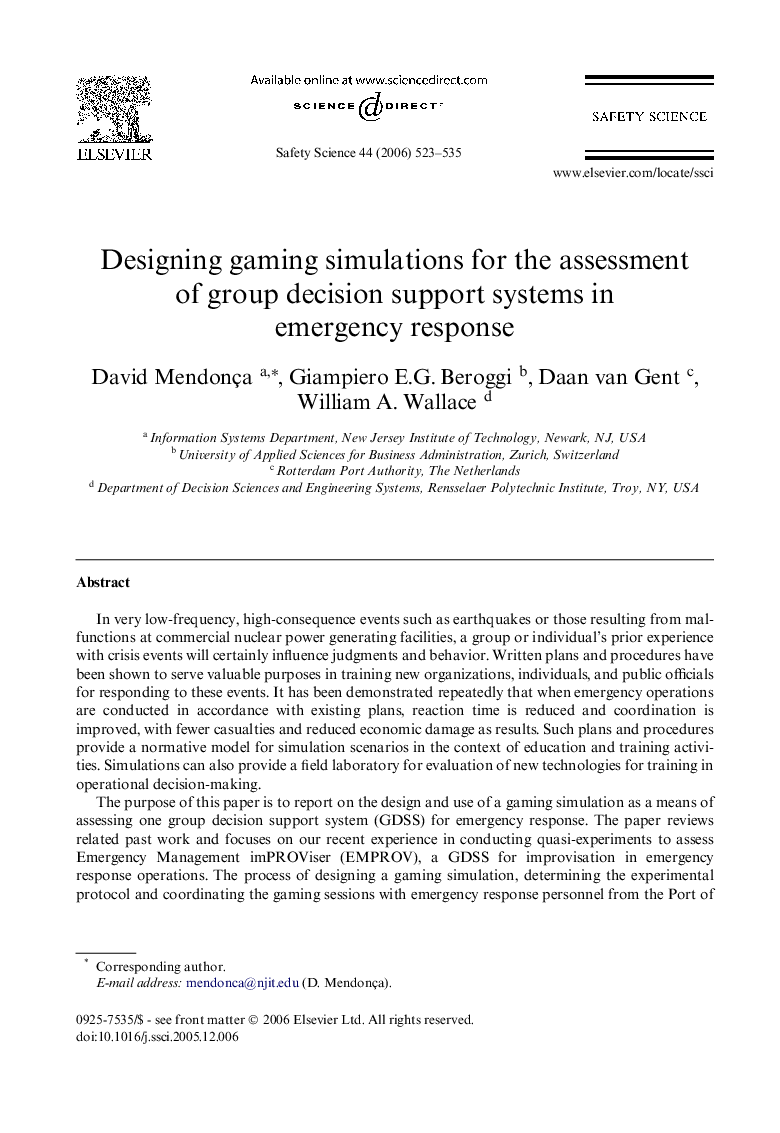| کد مقاله | کد نشریه | سال انتشار | مقاله انگلیسی | نسخه تمام متن |
|---|---|---|---|---|
| 590409 | 878765 | 2006 | 13 صفحه PDF | دانلود رایگان |

In very low-frequency, high-consequence events such as earthquakes or those resulting from malfunctions at commercial nuclear power generating facilities, a group or individual’s prior experience with crisis events will certainly influence judgments and behavior. Written plans and procedures have been shown to serve valuable purposes in training new organizations, individuals, and public officials for responding to these events. It has been demonstrated repeatedly that when emergency operations are conducted in accordance with existing plans, reaction time is reduced and coordination is improved, with fewer casualties and reduced economic damage as results. Such plans and procedures provide a normative model for simulation scenarios in the context of education and training activities. Simulations can also provide a field laboratory for evaluation of new technologies for training in operational decision-making.The purpose of this paper is to report on the design and use of a gaming simulation as a means of assessing one group decision support system (GDSS) for emergency response. The paper reviews related past work and focuses on our recent experience in conducting quasi-experiments to assess Emergency Management imPROViser (EMPROV), a GDSS for improvisation in emergency response operations. The process of designing a gaming simulation, determining the experimental protocol and coordinating the gaming sessions with emergency response personnel from the Port of Rotterdam will be described. Finally, the paper concludes with suggestions on how to improve the benefit of gaming simulations for training and operations.
Journal: Safety Science - Volume 44, Issue 6, July 2006, Pages 523–535